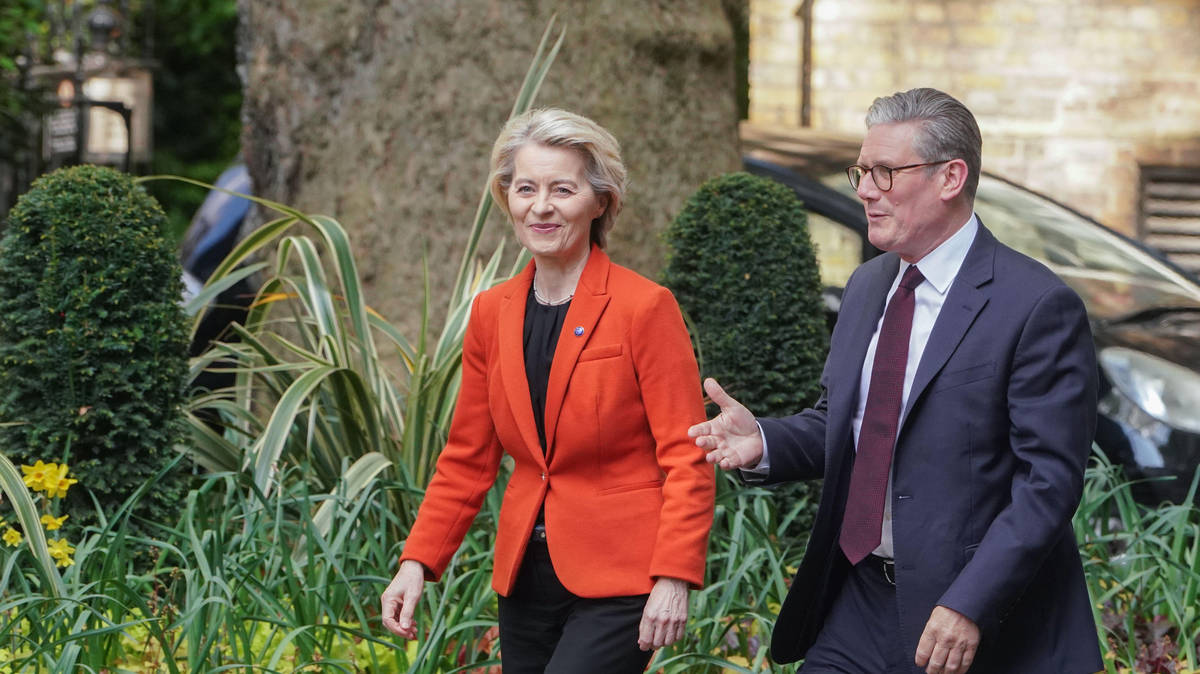17 July 2025, 13:04
Ursula von der Leyen President of the European Commission arrives at Downing Street with Prime Minister Keir Starmer.
Picture:
Alamy
The UK will be forced to pay into the European Union’s budget as a result of Sir Keir Starmer’s reset deal, new documents have revealed.
The EU has demanded financial contributions to its bodies that manage food standards and the carbon market rules that Britain must follow under after Prime Minister’s reset.
Documents state that the government will be required to make a financial contribution to “the functioning of the relevant Union agencies, systems and databases to which the United Kingdom would gain appropriate access” via the proposed agreement.
It would mark the first time Britain makes fresh repayments into the EU’s budget since Brexit.
The government also agreed to pay into the budget for the Horizon Europe science programme as part of the negotiations to leave the EU.
The bloc’s negotiating mandate states: “The United Kingdom should bear appropriate costs for participation in the common Sanitary and Phytosanitary area and for the implementation of the agreement to link the United Kingdom and the Union’s greenhouse emissions trading systems.”
Read more: Macron says Brits were ‘sold a lie’ over Brexit as ‘one in, one out’ migrants deal unveiled
Prime Minister Keir Starmer and Foreign Secretary David Lammy listen to European Commission President Ursula von der Leyen, right, and European Council President during a meeting between the UK and the European Union.
Picture:
Alamy
Documents state that the UK will be prevented from making any changes or amendments to the rules.
“The United Kingdom should contribute financially to supporting the relevant costs associated with the Union’s work in these policy areas,” they read.
The draft negotiating guidelines are the next step of Sir Keir’s Brexit reset after he struck a deal with the European Commission in May, paving the way for a new trading relationship.
The Prime Minister has hailed that agreement as “good for jobs, good for bills, and good for our borders” with a serie of wins on border checks for travellers, defence and police cooperation, and slashing red tape on food imports and exports.
Sir Keir said at the time: “It’s time to look forward. To move on from the stale old debates and political fights to find common sense, practical solutions which get the best for the British people.
“We’re ready to work with partners if it means we can improve people’s lives here at home.“So that’s what this deal is all about – facing out into the world once again, in the great tradition of this nation. Building the relationships we choose, with the partners we choose, and closing deals in the national interest. Because that is what independent, sovereign nations do.”
That agreement ruled that the UK would follow EU rules on food standards and obey the European Court of Justice to slash red tape on agricultural exports and ramp up trade.
The terms and conditions of the deal still need to be agreed on by the Government and the Commission before it can come into force.
However, the fresh demands are thought to be red lines for the EU, according to the Telegraph.
The UK has said it is willing to “dynamically align” with EU rules on food and animal safety and carbon emissions, which may require Britain to change some of its laws to factor in that alignment.
But the Commission will reportedly state that “neither agreement should give the United Kingdom the right to participate in the Union’s decision-making”.
It means the UK could be forced to more closely align with the EU across a wide range of sectors.
These include “electricity generation, industrial heat generation (excluding the individual heating of houses), industry, domestic and international maritime transport and domestic and international aviation”, the document states.
The EU’s Luxembourg-based Court of Justice will reportedly have the final say over any potential disagreement
